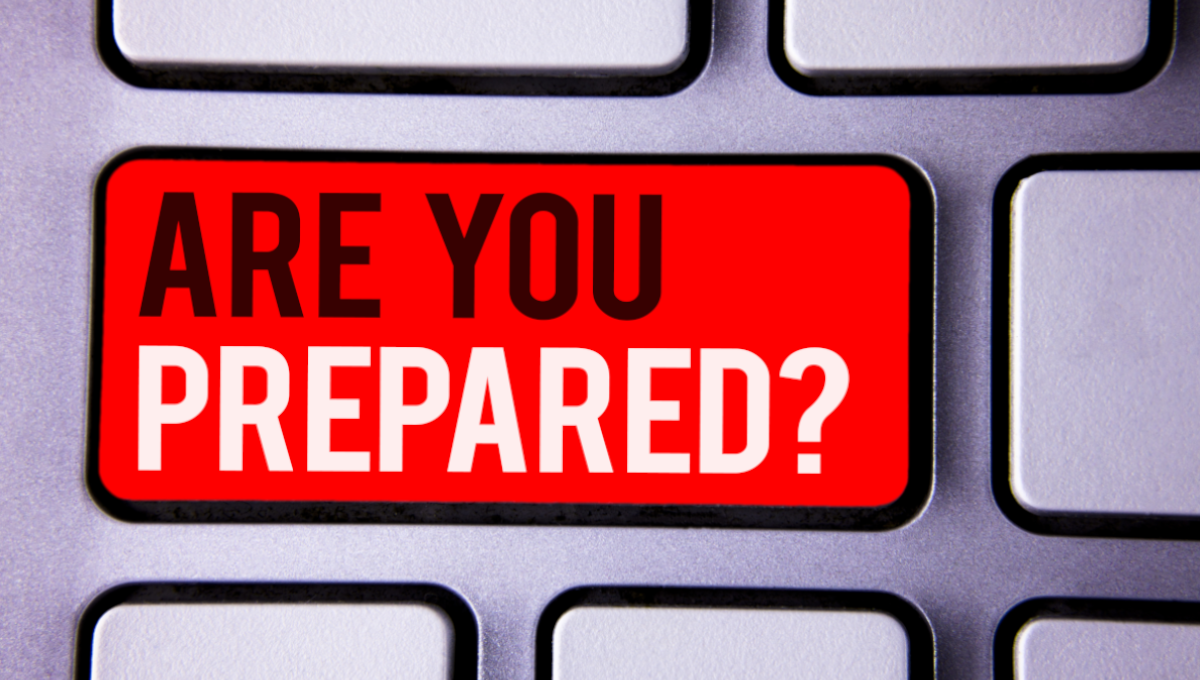
Tropical Storm Nicole has been forecasted to form into a Hurricane today and strike the east coast of Florida tonight. Those in the storm’s path should prepare for the potential damage it may cause, and the risks to health that it will pose.
Food safety risks are easy to overlook, but prolonged power outages and flood damage are big risks to your food and health. Here are some useful tips that can help keep you and your family safe from foodborne illness during a hurricane.
Tips from the USDA and FDA:
Action plan before a storm hits:
- Buy ice packs and coolers days before the hurricane arrives in case there is a prolonged power outage.
- Pour water into containers and freeze it to make ice.
- Use an appliance thermometer to determine the safety of your perishable foods. Meat, poultry, fish and egg products must be kept at 40 F or below and frozen food at 0 F or below.
- For meats, check the canned goods aisle of your local grocery store for canned meats. These are fully cooked and unopened canned meats that don’t require refrigeration.
During a Storm
Keep food at recommended temperatures. Keep in mind that perishable food such as meat, poultry, seafood, milk, and eggs not kept at recommended temperatures can make you sick—even if thoroughly cooked.
Do not eat or drink anything that has touched flood water, including food packed in non-metal containers.
How to sanitize cans of food:
- Remove labels from cans, which can harbor dirt and germs, wash the cans, and dip them in a solution of 1 cup (8 oz/250 mL) of unscented household (5.25% concentration) bleach in 5 gallons of water.
- Allow the cans to air dry.
- Re-label the cans with a marker. Include the expiration date.
How to sanitize containers, countertops, pots, pans, dishware and utensils:
- Thoroughly wash, rinse, and sanitize anything that may come in contact with food — for example, pans, dishes, utensils, and countertops. Throw away wooden cutting boards or bowls — these cannot be safely sanitized.
- Mix 1 tablespoon unscented household (5.25% concentration) liquid bleach with 1 gallon of water.
- Soak the item in the solution for 15 minutes.
- Allow to air dry.
How to make tap water safe to drink:
After a natural disaster, water may not be safe to drink. Area Health Departments will determine whether the tap water can be used for drinking. If the water is not potable or is questionable, then follow these directions:
- Use bottled water that has not been exposed to flood waters if it is available.
- If you don’t have bottled water, you should boil water to make it safe. Boiling water will kill most types of disease-causing organisms that may be present. If the water is cloudy, filter it through clean cloths or allow it to settle, and draw off the clear water for boiling. Boil the water for one minute, let it cool, and store it in clean containers with covers.
- If you can’t boil water, you can disinfect it using household bleach. Bleach will kill some, but not all, types of disease-causing organisms that may be in the water. If the water is cloudy, filter it through clean cloths or allow it to settle, and draw off the clear water for disinfection. Add 1/8 teaspoon (or 8 drops) of unscented household (5.25% concentration) liquid bleach for each gallon of water, stir it well and let it stand for 30 minutes before you use it. Store disinfected water in clean containers with covers.
- If you have a well that has been flooded, the water should be tested and disinfected after flood waters recede. If you suspect that your well may be contaminated, contact your local or state health department or agriculture extension agent for specific advice.
After a storm
If water supply is still unsafe, boil water or use bottled water.
Once power is restored, check the temperature inside your refrigerator and freezer. You can safely eat or refreeze food in the freezer if it is below 40 F.
If your freezer does not include a thermometer, then check the temperature of each food item. If the item still contains ice crystals or is at or below 40 F, you can safely refreeze it.
Discard any perishable food—for example, meat, poultry, fish, eggs, milk—that has been in a refrigerator or freezer at or above 40 F for 2 hours or more.
When in doubt, throw it out.
Farmers in the storm’s path
Among those in Hurricane Nicole’s path are farmers and their fields of crops grown for human consumption. The U.S. Food and Drug Administration’s Center for Food Safety and Applied Nutrition has several resources to help growers who may be affected by the impacts to their crops from severe weather conditions.
The FDA’s Guidance for Industry: Evaluating the Safety of Flood-affected Food Crops for Human Consumption provides the information that producers can use as they assess potential damage to their food crops. This guidance is an important resource for the growers who produce and market these crops, as they are responsible for assuring the safety of flood-affected food crops for human consumption.
The FDA reminds harvesters that generally if the edible portion of a crop is exposed to contaminated flood waters, it is considered “adulterated” under the Federal, Food, Drug and Cosmetic Act and should not enter the human food supply. This applies to all food crops including underground crops (e.g., peanuts, Copotatoes). For crops that were in or near flooded areas but where flood waters did NOT contact the edible portions of the crops, the growers should evaluate the safety of the crops for human consumption on a case-by-case basis for possible food safety concerns.
Sometimes, crops that have been harvested and then subsequently deemed unsuitable for human use can be salvaged for animal food.
(To sign up for a free subscription to Food Safety News, click here.)
